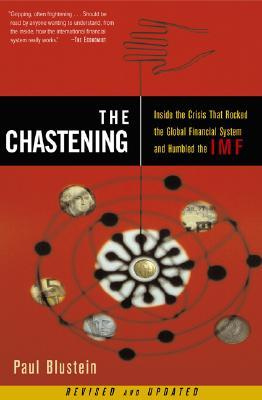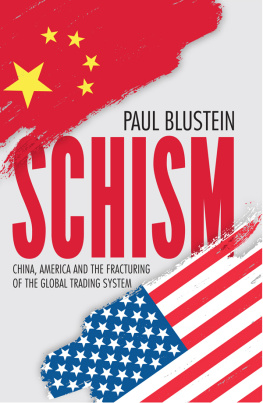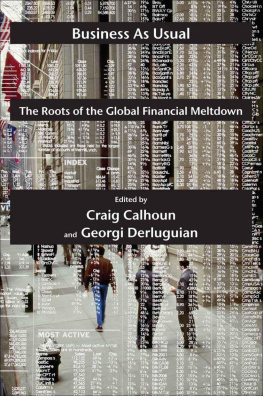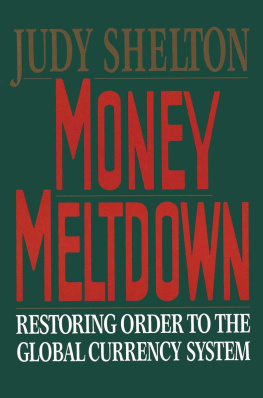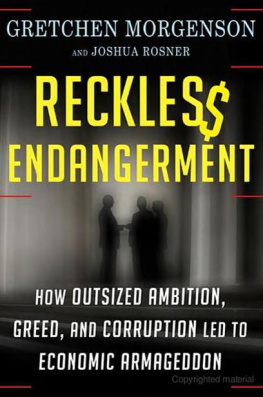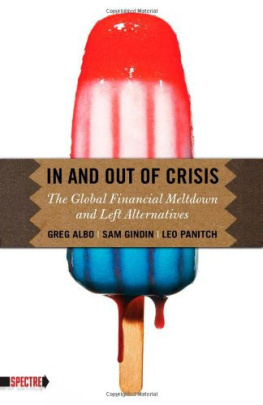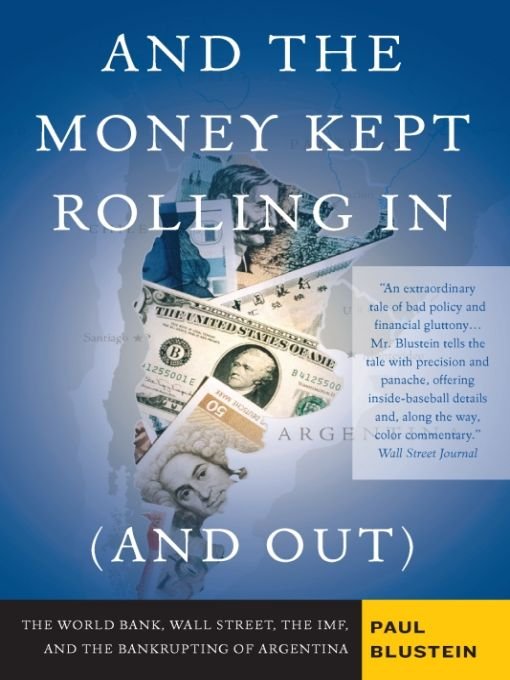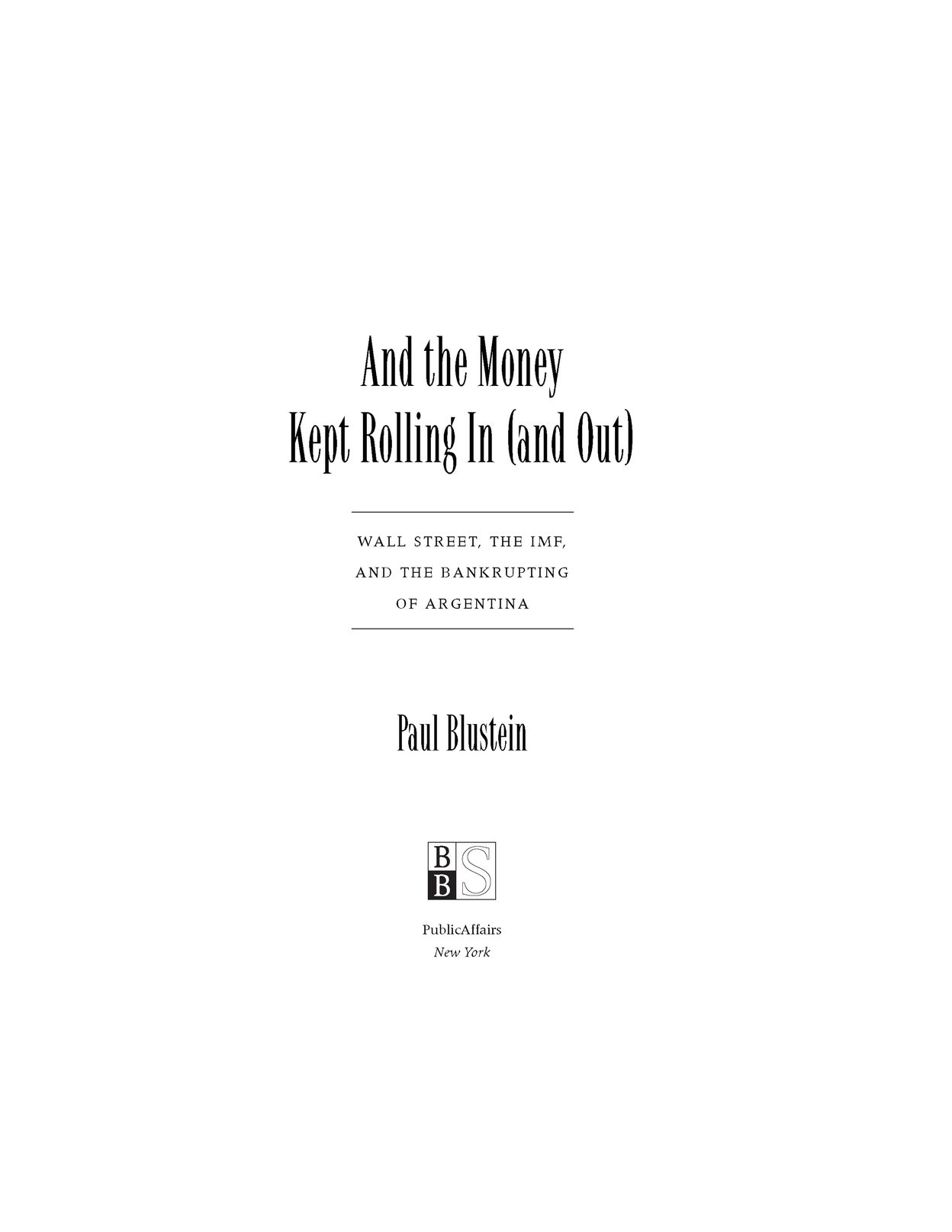Table of Contents
PRAISE FOR AND THE MONEY KEPT ROLLING IN (AND OUT)
[A] vivid and intelligent case study of economic tragedy.
Foreign Affairs
Suspenseful... crisp prose accessible even to those who rarely read financial newspapers.... Paul Blustein deserves much praise for his stagecraft.
The Weekly Standard
An entertaining, insightful account of how in the space of a few years Argentina went from emerging market poster child to problem child in the family of nations.... Undoubtedly the greatest strength of this book is what it reveals about the inner workings of the IMF.
The Buenos Aires Herald
Mr. Blustein has built an admirably clear and cohesiveand importantnarrative out of the tangled threads of Argentinas economic history. Even more impressively, he has made a page-turner out of a currency crisis, which surely ranks among the neatest feats in the very checkered history of business journalism.
New York Sun
A fine postmortem of the debacle... working from a colorful inside account of the decision-making processes of the IMF and international investors, [Blustein] does an admirable job of elucidating the complexities of international finance, currency reform and debt.
Publishers Weekly
Tells in exquisite and chilling detail the Argentine story of borrowing, boom and bust... a fascinating, well written international tale.
Bloomberg News columnist John M. Berry
ALSO BY PAUL BLUSTEIN
The Chastening
To my children:
Nina, Nathan, Dan, and Jack,
whom I will always love unconditionally, even if they go to work on Wall Street
Authors Note and Acknowledgments
ONE OF the things I like best about my job at The Washington Post is that from time to time, Ill get requests like the one I got in early February 2002 when David Hoffman, the Posts foreign editor, called me at home on a Sunday afternoon. Can you go to Argentina as soon as possible? he asked me. The Posts regular correspondent in Buenos Aires had to rush home to the United States for a family emergency, David explained, and the paper needed to send a reporter who knew something about financial crises of the sort that had just knocked Argentina flat. Such crises were becoming a specialty of mine, in much the same way that other reporters specialize in airplane crashes or nuclear plant malfunctions; I had covered the crises of the late 1990s in Asia, Russia, and Brazil and had authored a book on that topic (The Chastening: Inside the Crisis That Rocked the Global Financial System and Humbled the IMF, PublicAffairs, 2001). As sorry as I was for the Argentine people, I was thrilled with the opportunity to better understand their nations travails, and the next day I was on a flight to Buenos Aires.
That was the genesis of this book. During that trip, I tracked down a few of the people who had held high-ranking economic policy posts in the Argentine government in the period leading up to the crash, to ask for their recollections of the crucial turning points, and I soon concluded that the saga of Argentinas rise and fall was even more drama-packed than the tales I had just recounted from the other countries. Upon returning to the States, I continued gathering string about the Argentine crisis when I could find time away from my daily reporting duties. Initially, I thought I would write a chapter about Argentina as an addendum to The Chastening, but as I delved deeper into the events in question, I realized that this chronicle merited its own book. My conviction grew when scandals erupted on Wall Street over the conduct of securities firms during the stock market bubble, because I began to connect dots between those scandals and the hype surrounding Argentinas huge borrowing on the international bond markets in the late 1990s. A couple of phone calls with Peter Osnos, the publisher of PublicAffairs, got me launched; Peter had inspired me to tackle my first book, and he played a similarly formative role this time around.
The result is a book with a substantially higher indignation quotient than The Chastening. The more people I interviewed, and the more documents I obtained, the more appalled I became about the part the international community had played in pumping up Argentinas economy to a dangerous degree and then letting the country down so badly when the bubble burst. So whereas my previous book has a more-in-dread-than-in-anger tone, this one reflects my ire concerning a system that has caused misery to millions of people and threatens to afflict millions more. This book also dwells a great deal more on the buildup to the crisis, and on the role that financial markets played in rendering the country vulnerable.
The book is based on interviews with more than 125 peopletop officials of the International Monetary Fund, U.S. government, other G-7 governments, and the Argentine government, together with many from the financial markets and a smattering of other crisis participants and observers. To a much greater extent than in The Chastening, I have relied on contemporaneous material, especially internal IMF documents including memos, confidential reports, and notes of meetings. Quite a few sources, I am pleased to report, kindly furnished me with such material, and I would like to give them my heartfelt thanks for helping me write as accurate and comprehensive an account as possible. Not everyone was so forthcoming; many IMF officials recoiled at my request for memos from their files, and voiced consternation upon learning that I had obtained such documents elsewhere. But even these people were extremely generous with their time, in some cases enduring many bouts of questioning; by the end I was resorting to joking weakly that I would stop describing my query as the final round because that promise had proved false so often in the past. I am enormously grateful to all the people who took the trouble to answer my questions, and particularly those who good-naturedly accepted repeated phone calls and requests for meetings. In this regard, I am also obliged to Tom Dawson, director of the IMFs External Relations Department, for once again allowing me free rein to contact Fund staffers directly and meet with them privately; and to Tony Fratto, deputy assistant secretary for public affairs at the U.S. Treasury, for facilitating my interview requests.
Most of my interviews were conducted on a deep-background basis, so I could use the information provided but could not quote the interviewees or cite them as sources unless granted permission later to do so. Many sources were naturally reluctant to be quoted on sensitive matters, particularly because a number of the key players were still in their jobs. To the greatest extent possible, I have attributed quotes by name, but I trust readers will understand that in certain cases this proved infeasible, and I hope they can accept my assurances that unattributed material has been carefully researched and checked. For example, when people recalled conversations at meetings, I made every effort to confirm the accounts with other participants.
A list of interviewees appears in the Notes section, including those who spoke on the record, plus those who were interviewed on deep background and later granted permission to be quoted or named as sources for the book. Some people declined to be listed, and a couple of key players refused to be interviewed at all. In the case of people whose actions I have criticized or questioned, I made sure to seek their viewpoint, even if they did not want to be quoted in their own defense. These include several financial market participants. A personal aside is in order here: Despite my harsh judgments about Wall Streetand my swipe at the Street in the books dedicationI genuinely like market folks, who are mostly engaging, personable, and blessed with wicked senses of humor. In depicting some of their conduct as socially undesirable, I hope I have made it clear that the problem should be attributed to the pressures under which they are forced to operate, rather than deficiencies of character.


